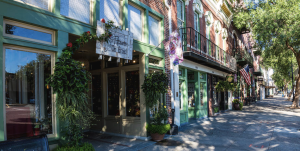 Augusta is a small historic city located on the Georgia-South Carolina border on the banks of the beautiful Savannah River. As part of the consolidated Augusta–Richmond County, the city is the second-most populous metropolis in Georgia after Atlanta.
Augusta is a small historic city located on the Georgia-South Carolina border on the banks of the beautiful Savannah River. As part of the consolidated Augusta–Richmond County, the city is the second-most populous metropolis in Georgia after Atlanta.
Augusta has an estimated population of around 200, 000 residents, approximately a third of the population of the Augusta Metropolitan Area which has its headquarters in Augusta.
Augusta, Georgia History
Augusta has come a long way from being a simple military outpost in the colonial province of Georgia to hosting one of the world’s most popular and most exclusive golf championships; The Masters golf tournament.
Walking down memory lane, the Augusta city area was originally inhabited by various groups of Native American tribes who mainly relied on hunting and fishing along the Savannah River. They also used the river as a source of fresh drinking water and for transportation purposes. The indigenous people, just like the Europeans settlers after them, had strategically chosen the current site of Augusta city as it was one of the few fordable points on the Savannah River.
Two years after James Oglethorpe landed near the Yamacraw Bluff and established both Savanna city and the province of Georgia, he sent out an expedition party to investigate the upper section of the Savannah River and establish a military outpost near the furthest navigable point on the river. The resulting military settlement was named Augusta in honor of the mother of King George III. For a brief period of time between 1785 and 1795, the capital of Georgia was shifted from savannah to Augusta.
Historical Augusta GA
Originally, the settlement served as a trading and shipping center for cotton which was the main cash crop in the area. The city would later evolve to an industrial center after the invention of a small-scale cotton processing plants. The cotton business was driven by the availability of cheap slave labor.
In 1916, the city of Augusta was destroyed by a fire that devoured most of its first permanent buildings and erased several years of history. The city served as a major center of operations in Georgia during the Reconstruction era and the years that followed.
Today, the city is a renowned residential enclave and a low key family fun destination. Some of the most popular attractions and landmarks in the city include Sacred Heart Cultural Center, Augusta Canal, Riverwalk Augusta, and the Augusta Common just to mention a few.

